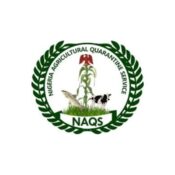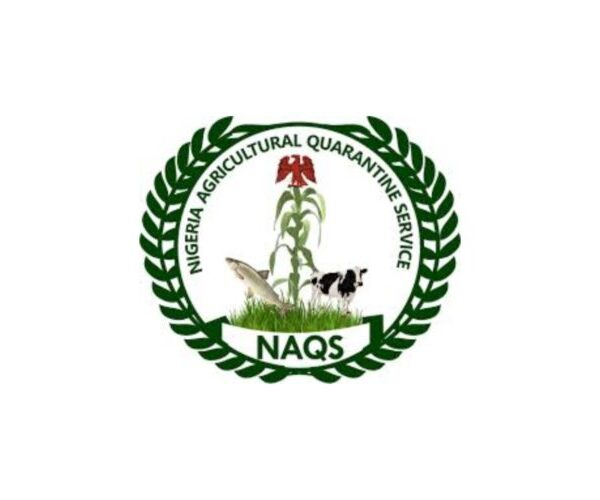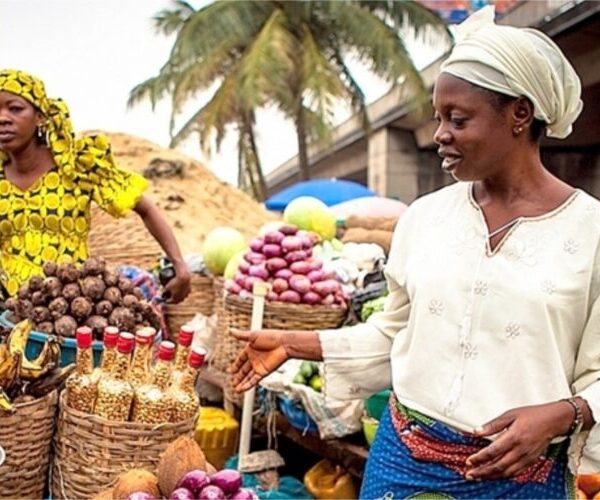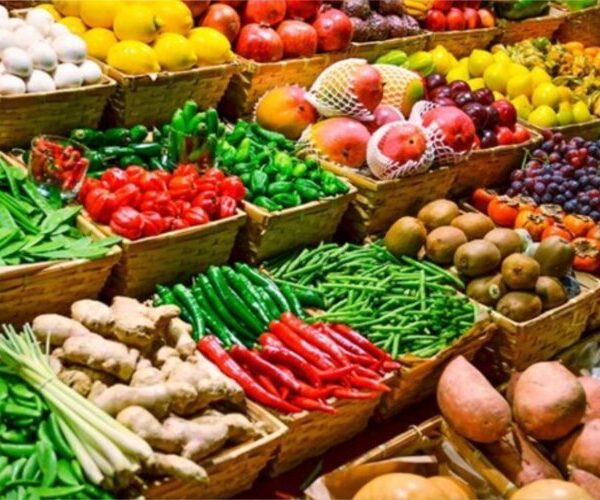- Government Organisation
- Abuja, Federal Capital Territory, Nigeria

Nigeria Agricultural Quarantine Service (NAQS)
About Us
The Nigeria Agricultural Quarantine Service (NAQS) is a regulatory agency under the Federal Ministry of Agriculture and Rural Development, established with the mandate to protect Nigeria’s agricultural economy and natural resources. NAQS was created to regulate the movement of agricultural products both within and outside the country, ensuring the safety and security of Nigeria’s agricultural sector. The agency plays a crucial role in safeguarding the nation’s plant, animal, and aquatic resources from harmful pests, diseases, and other biosecurity threats.
NAQS focuses on preventing the introduction, spread, and establishment of plant pests, animal diseases, and aquatic pathogens that could jeopardize the health of the nation’s agricultural and food production systems. The agency works diligently to monitor and control the movement of agricultural goods entering or leaving Nigeria, ensuring compliance with national and international standards for biosecurity. This involves stringent inspection and certification processes for agricultural exports and imports, including crops, livestock, and fish, to prevent the inadvertent spread of harmful organisms.
In addition to its core responsibilities of pest and disease control, NAQS also collaborates with other national and international bodies to ensure that Nigeria’s agricultural products meet the required quality standards for global trade. This includes enforcing quarantine regulations, conducting risk assessments, providing technical support to farmers, and promoting awareness on biosecurity practices. By preventing the spread of agricultural threats, NAQS helps to protect Nigeria’s food security, enhance agricultural productivity, and support the country’s participation in international agricultural trade.
NAQS also contributes to the development of policies and strategies aimed at strengthening Nigeria’s agricultural biosecurity framework. Through its various programs, the agency works to improve the resilience of the agricultural sector, ensuring that Nigeria’s farmers, livestock producers, and fishery operators are equipped to face emerging challenges in agriculture. By maintaining a high level of vigilance, oversight, and compliance with global standards, NAQS plays an essential role in ensuring that Nigeria’s agricultural sector remains safe, productive, and competitive in the global marketplace.
The mission of NAQS is not only to prevent the spread of harmful pests and diseases but also to foster the sustainable development of Nigeria’s agricultural economy, ensuring the health and safety of its citizens, the environment, and future generations.
History of the Nigeria Agricultural Quarantine Service (NAQS)
The Nigeria Agricultural Quarantine Service (NAQS) was established as a response to the growing need for a regulatory body to protect Nigeria’s agricultural sector from the potential risks posed by pests, diseases, and other biosecurity threats. The history of NAQS is rooted in the recognition of the importance of agriculture to Nigeria’s economy and the need to safeguard the nation’s agricultural resources to ensure food security and sustainable economic growth.
Establishment and Early Years
The origins of the Nigeria Agricultural Quarantine Service can be traced back to the early 1990s when the government realized the significant risks posed by the movement of agricultural products, especially with increasing international trade and travel. The establishment of NAQS was formalized by the enactment of the Agricultural Quarantine Service Act of 1997, under the Ministry of Agriculture and Rural Development. This Act gave the agency its mandate to regulate and monitor the movement of agricultural products, animals, and plant materials into, out of, and within Nigeria.
Initially, the agency’s primary focus was on plant protection, especially in preventing the introduction and spread of invasive pests and diseases that could harm crops and, by extension, the nation’s agricultural economy. However, over time, the scope of the agency’s work was expanded to include the regulation of livestock and aquatic resources, reflecting the growing need for comprehensive biosecurity in Nigeria’s diverse agricultural landscape.
Expanding Roles and Mandates
In its early years, NAQS was tasked with enforcing quarantine regulations on agricultural imports and exports. This meant that the agency had to carefully monitor the entry of agricultural products into Nigeria to ensure that harmful pests and diseases did not gain a foothold in the country. NAQS worked closely with customs, other regulatory agencies, and international organizations to ensure that Nigeria’s agricultural products met the standards required by global markets.
As the agricultural landscape evolved, NAQS expanded its operations to address the emerging threats to Nigeria’s agricultural sector. One significant development was the increased need for surveillance and control of animal diseases, such as avian influenza and foot-and-mouth disease, which posed significant risks to Nigeria’s livestock industry. The agency began working with veterinary and animal health experts to implement measures that would prevent the spread of these diseases through the movement of animals and animal products.
International Collaboration and Capacity Building
In addition to its national role, NAQS has actively participated in international efforts to strengthen agricultural biosecurity. The agency has worked in collaboration with organizations such as the World Organization for Animal Health (OIE), the Food and Agriculture Organization (FAO), and the World Trade Organization (WTO) to align Nigeria’s quarantine policies with international standards. This collaboration has helped Nigeria’s agricultural products gain better access to international markets by ensuring they meet the necessary phytosanitary and zoosanitary requirements.
NAQS has also focused on building capacity within Nigeria’s agricultural sector by providing training and technical support to farmers, exporters, and other stakeholders. This training includes educating farmers on the risks posed by pests and diseases and teaching best practices for managing and controlling these threats. The agency has also been involved in research and development, working with agricultural scientists to monitor and study emerging pests and diseases that may affect Nigeria’s agriculture.
Recent Developments and Challenges
In recent years, NAQS has faced new challenges arising from climate change, global trade, and the increase in international travel. The agency has had to adapt to these changing dynamics, stepping up its efforts to prevent the spread of transboundary pests and diseases that could have devastating effects on Nigeria’s agriculture and economy. This includes implementing more advanced diagnostic techniques, expanding quarantine inspection facilities at ports of entry, and improving coordination with other regulatory bodies to ensure swift action when outbreaks occur.
NAQS also continues to monitor and regulate the movement of agricultural products within Nigeria to prevent the spread of pests and diseases between states and regions. This is critical for preventing localized outbreaks from becoming national problems and for maintaining the integrity of Nigeria’s agricultural exports.
Mission
To provide a world-class research, training, and science-based regulatory Service for the quality assurance of agricultural products through a strict and consistent enforcement of sanitary and phytosanitary measures for plants, animals, and aquatic resources health; thereby promoting food safety, sustainable agriculture, and economic development.
Vision
To be Nigeria’s lead regulatory agency and first line of defense for the prevention of the entry and spread of exotic pests and diseases of all agricultural products associated with international trade and migration.
Mandate
NAQS is a regulatory agency under the Federal Ministry of Agriculture and Rural Development. It was created for the harmonization of Plants, Veterinary and Aquatic resources (fisheries) Quarantine in Nigeria to promote and regulate sanitary (animal and fisheries health) and phytosanitary
Function of NAQS
The main objective of the Nigeria Agricultural Quarantine Service is to prevent the introduction, establishment and spread of exotic pests and diseases of all agricultural products in the international trade.
Services of NAQS
The Nigeria Agricultural Quarantine Service (NAQS) offers a variety of services to ensure the safety of agricultural products and the environment:
Quarantine
NAQS performs quarantine services for plants, animals, and aquatic resources:
- Plant quarantine: Protects crops and natural flora from foreign pests
- Animal quarantine: Inspects the health of live animals being imported or exported
- Aquatic resources quarantine: Regulates the import and export of aquatic resources
Enforcement
NAQS enforces laws, guidelines, and international agreements related to agricultural quarantine
Regulatory
NAQS regulates the production and registration of agro pesticides
Emergency Protocol
NAQS works with stakeholders to manage disease outbreaks and new pest incursions
Phytosanitary Certification
NAQS issues phytosanitary certificates for plants, plant products, and regulated articles being exported or re-exported from Nigeria
Quarantine Integrity Certificate
NAQS issues a quarantine integrity certificate after confirming that all observations and laboratory results are satisfactory
Permit of Entry
NAQS grants a permit of entry for aquatic products upon request, but only after documents are authenticated
Conclusion
The history of the Nigeria Agricultural Quarantine Service is a testament to Nigeria’s commitment to safeguarding its agricultural resources and ensuring the country’s food security. From its establishment in 1997 to its modern role as a key regulatory body, NAQS has played a crucial role in protecting Nigeria’s agriculture from biosecurity threats. Through its rigorous monitoring, inspections, research, and international collaborations, NAQS continues to contribute to the sustainable growth of Nigeria’s agricultural economy while enhancing the global competitiveness of Nigerian agricultural products.
As the challenges facing global agriculture evolve, NAQS remains dedicated to adapting its strategies and strengthening Nigeria’s biosecurity framework, ensuring that the nation’s agricultural resources remain safe, resilient, and poised for growth in the years to come.
Business Amenities
- Car Parking
-
 Government Organisation
Government Organisation
Contact Information
Opening Hours
Contact Business
Contact Business
Additional Information
Additional info








